A passenger aircraft without passengers
A COVID-19 flight to Shanghai
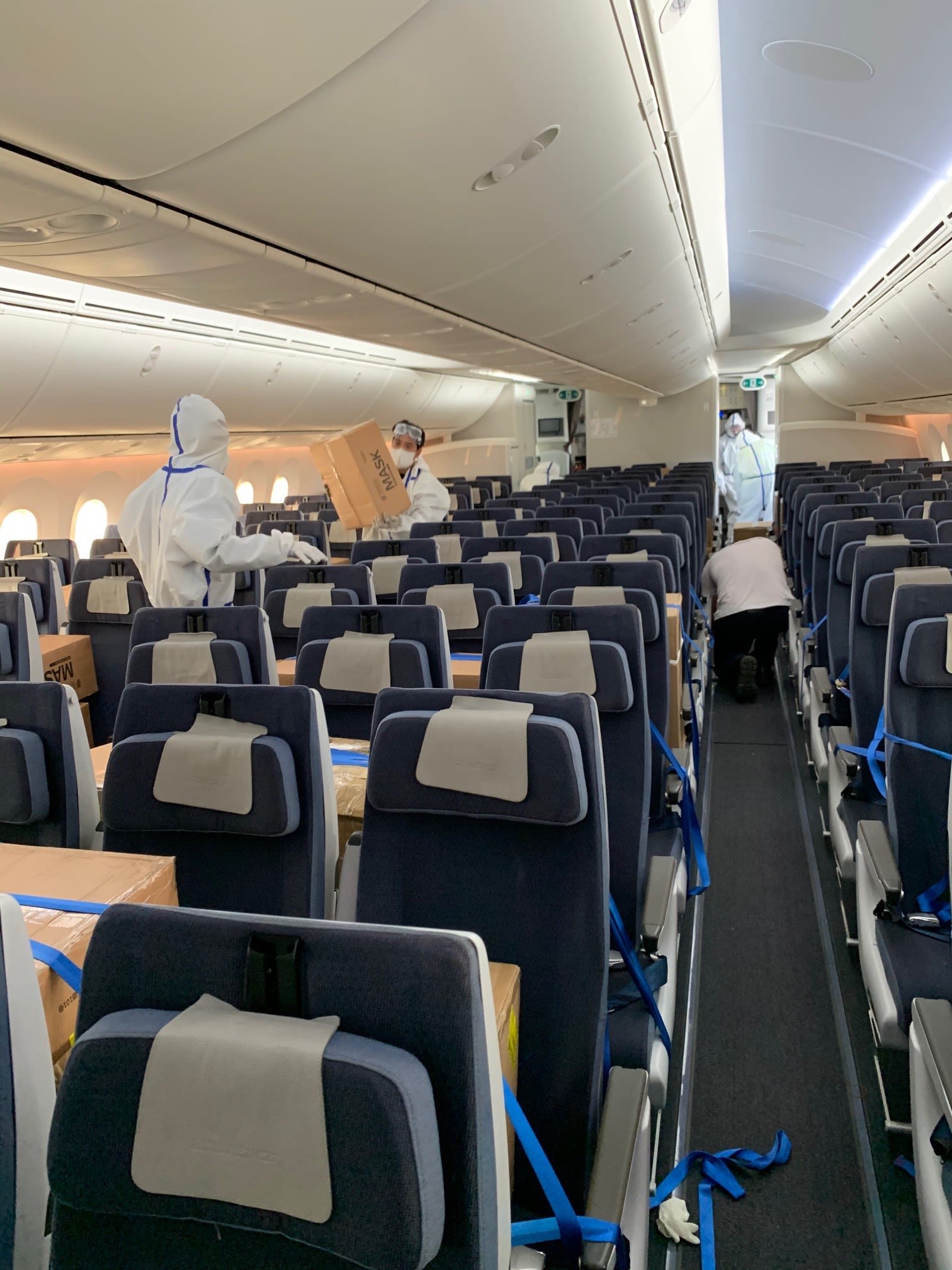
Passenger aircraft without passengers, but boxes strapped to the seats. This has become a somewhat symbolic image of aviation during the COVID-19 pandemic. Airline schedules reduced by up to 90%, and replaced by a scarce list of maintenance, repatriation and extraordinary operations flights.
How does it feel to operate one of those few flights? How does it affect the pilots and how do they manage the risk? We share with you experience lived by Amos Aldaag, a 787 Captain with El Al Israel Airlines and a board member at ISRALPA, who flew a recent Tel Aviv – Shanghai to bring home medical supplies.
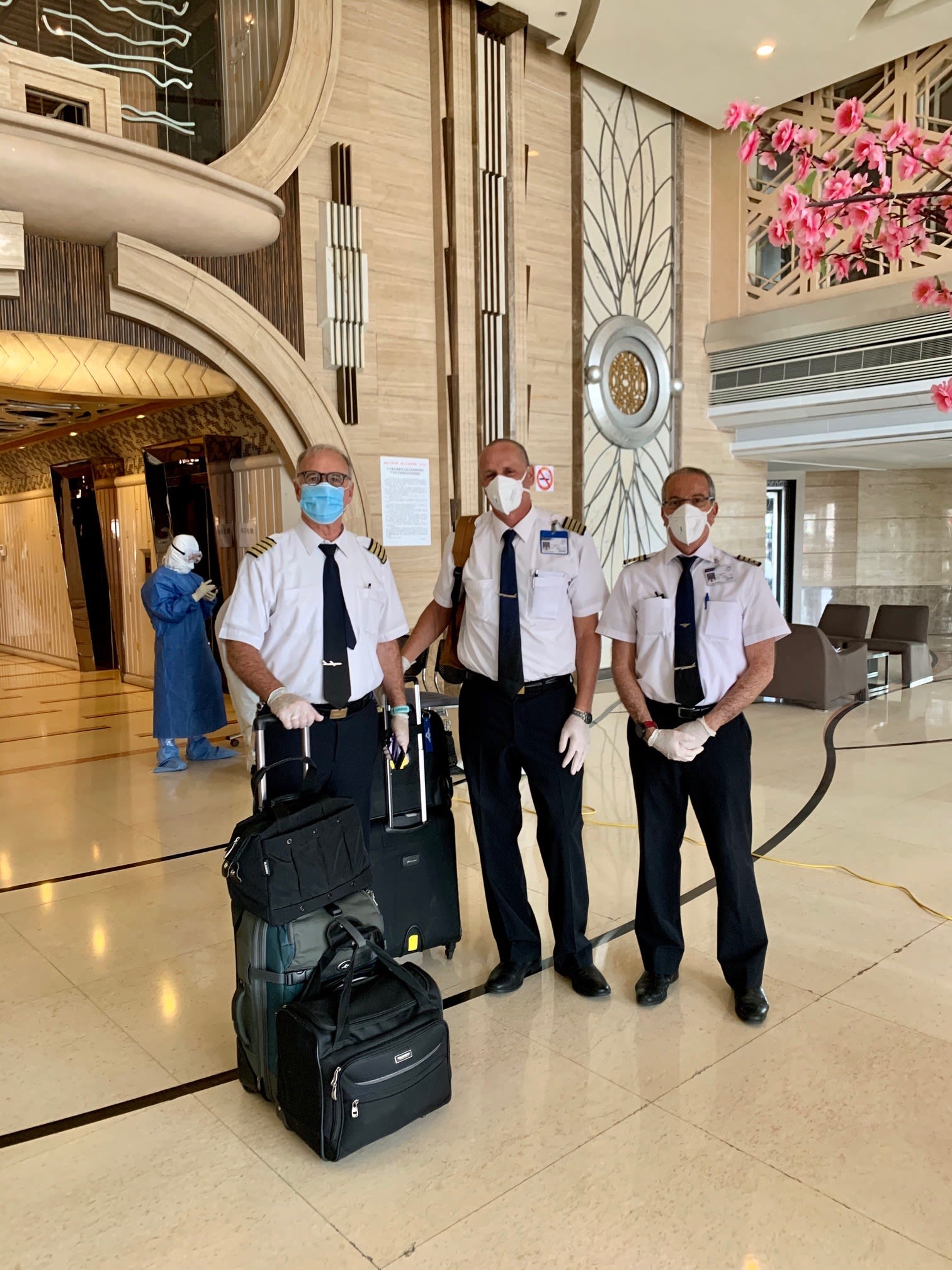
Q:
Amos, how was your trip to Shanghai organized? What measures did you take?

Amos: We were three Captains, one FA and two mechanics on the flight. During pre-flight ground operations we followed the standard protocol of social distancing, mask and gloves. Once on board and during the flight we did not use masks or gloves, but sanitized our hands frequently. And when we reached Shanghai, we went through a clearance process that took just over two hours.
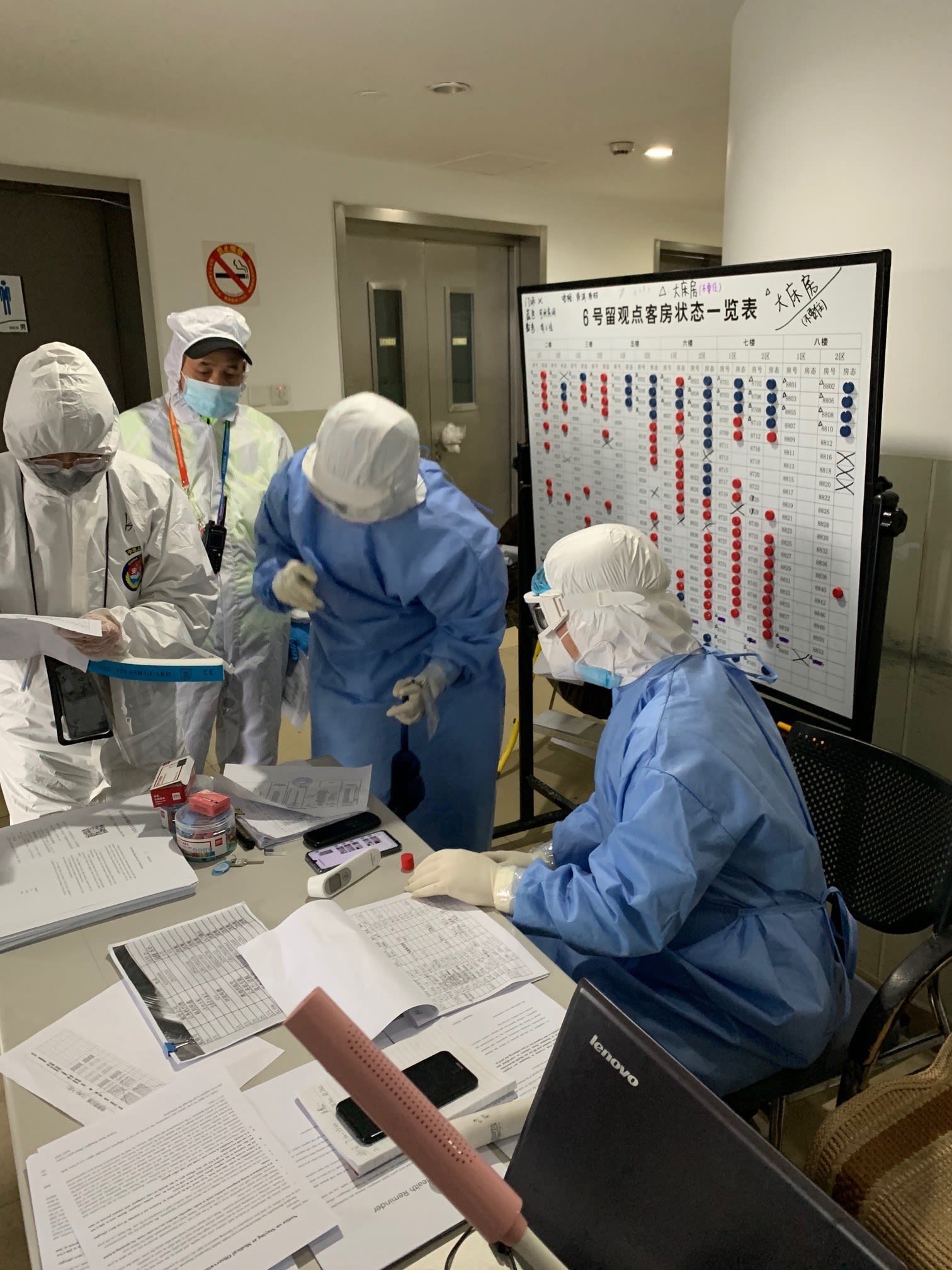
Q:
What did this clearance process include?

Amos: It included numerous non-contact body temperature measurements, a personal interview, disinfectant spray on clothes and shoes, Coronavirus oral test (one deep in the throat and one up the nostrils).
From there, we were taken to what used to be an airport hotel, and is now used as a quarantine facility. Once again, a lengthy reception process in the back entrance, and then we were shown to our rooms, not before we were briefed not to leave the room. That would have anyhow been difficult since we weren’t given keys to the rooms. I had to stay 36 hours in thatroom. I brought food from home, though food was provided and left outside my door. The clearance process on the way back through the terminal was however quick.
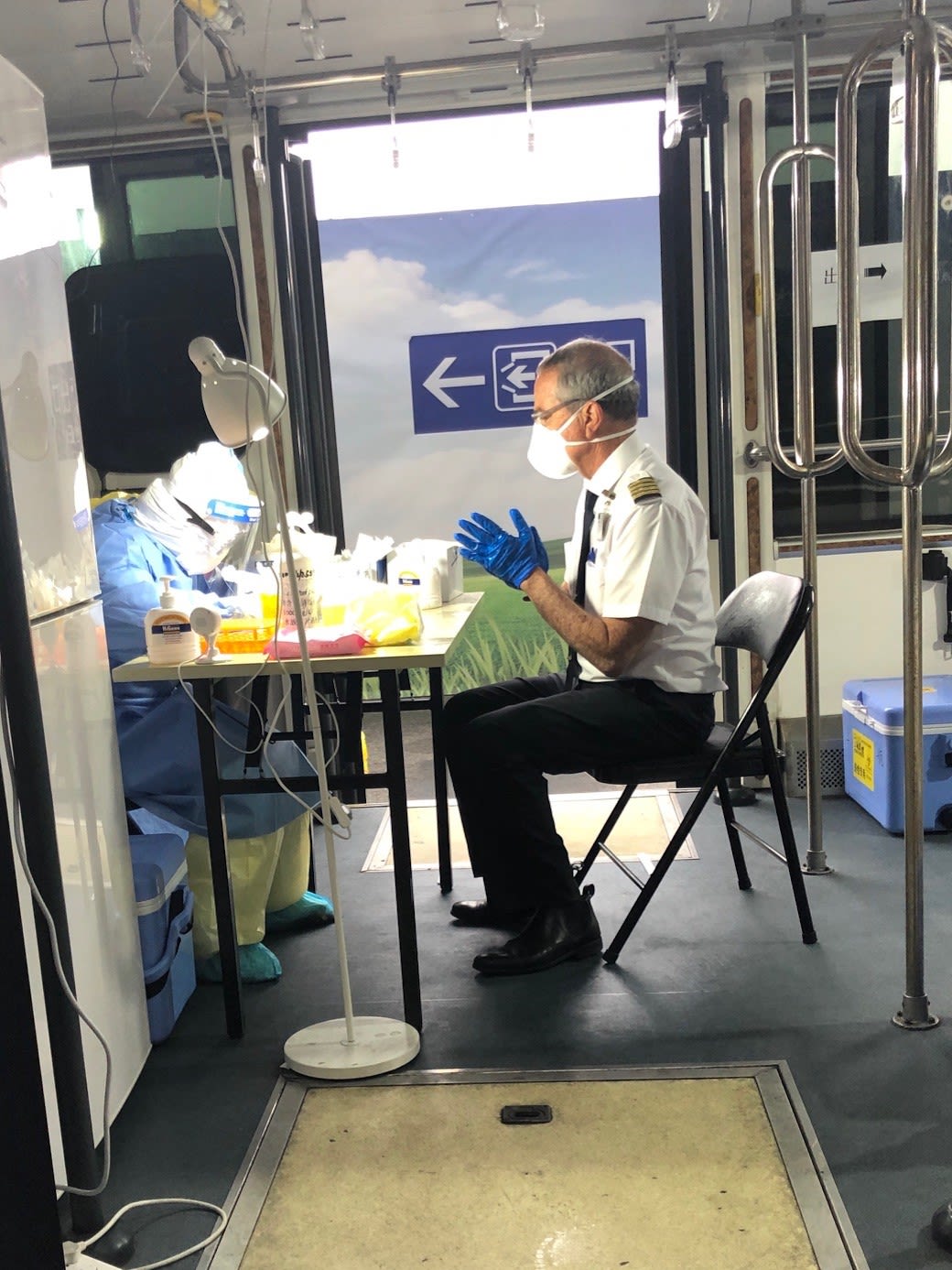
Q: That doesn’t sound as a pleasant experience…
Amos: I would definitely not rank it as a pleasant experience, but I consider the strict processing reasonable.
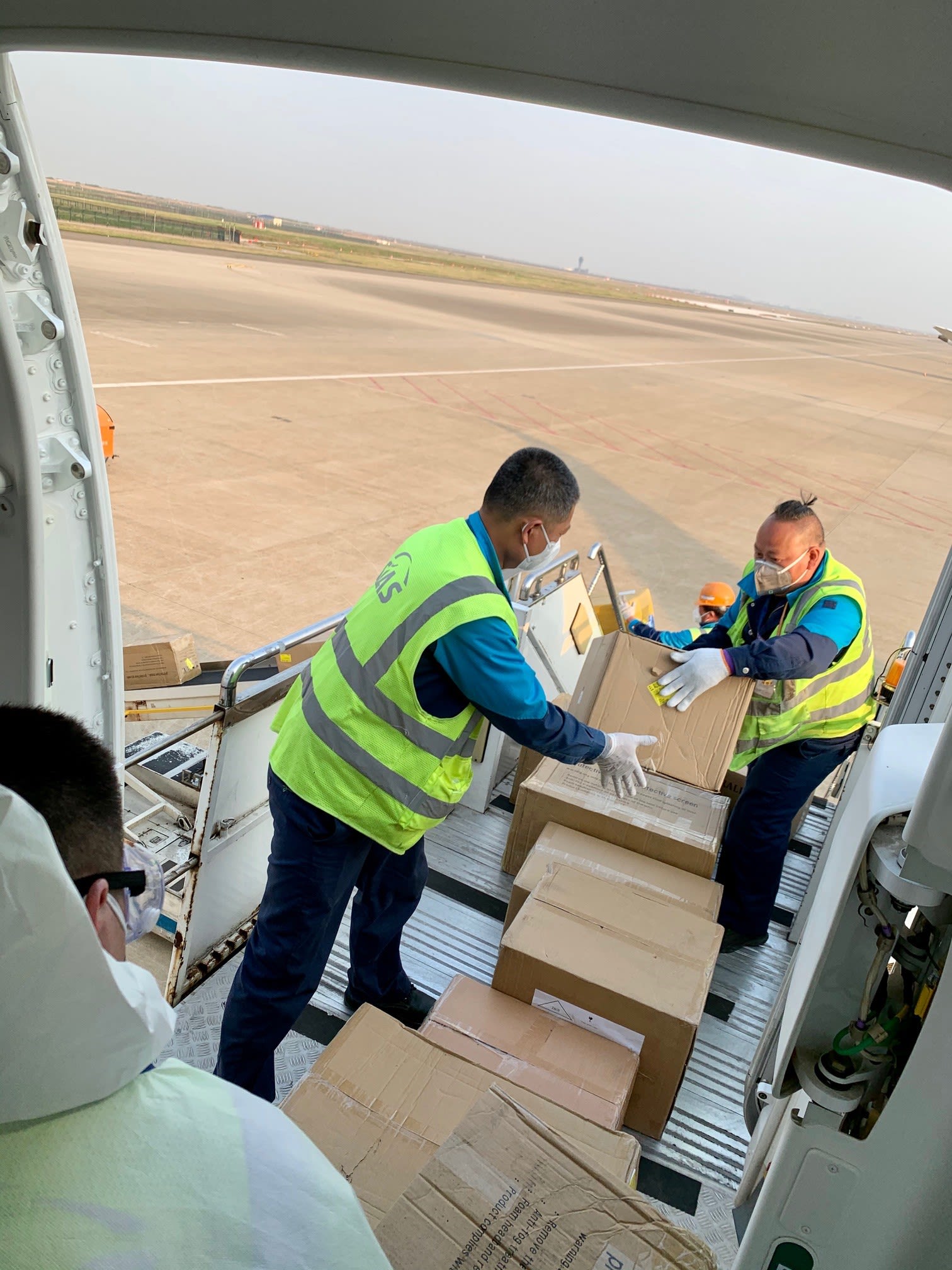
Q:
How did you feel and what thoughts were going through your head?

Amos: Actually, my main concern was that my Coronavirus test will show up positive. In that case I assumed that I would be taken to a local hospital, and my crew would need to stay in quarantine for a total of 14 days. The thought of that made the stay in Shanghai actually quite stressful.
I am less worried about a possible positive test once I am home. I go into this mission knowing how important it is to bring the much-needed supplies to medical crews and all others in need in my country. That puts my own risk into perspective.
The uncertainty about the future of the entire industry is in the background all the time
But of course, the uncertainty about the future of the entire industry, my own job and the jobs of my colleagues, are there in the background all the time. The government is dragging its feet with the much-needed financial aid. And even if and when received, it is clear that things in our industry are going to change. People in my company are concerned about loosing their job and livelihood, not flying for a long period, and about other associated developments. These are clearly very challenging times.

www.eurocockpit.be

